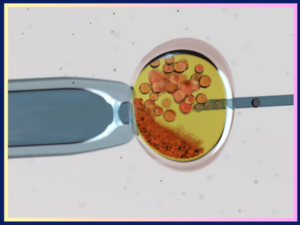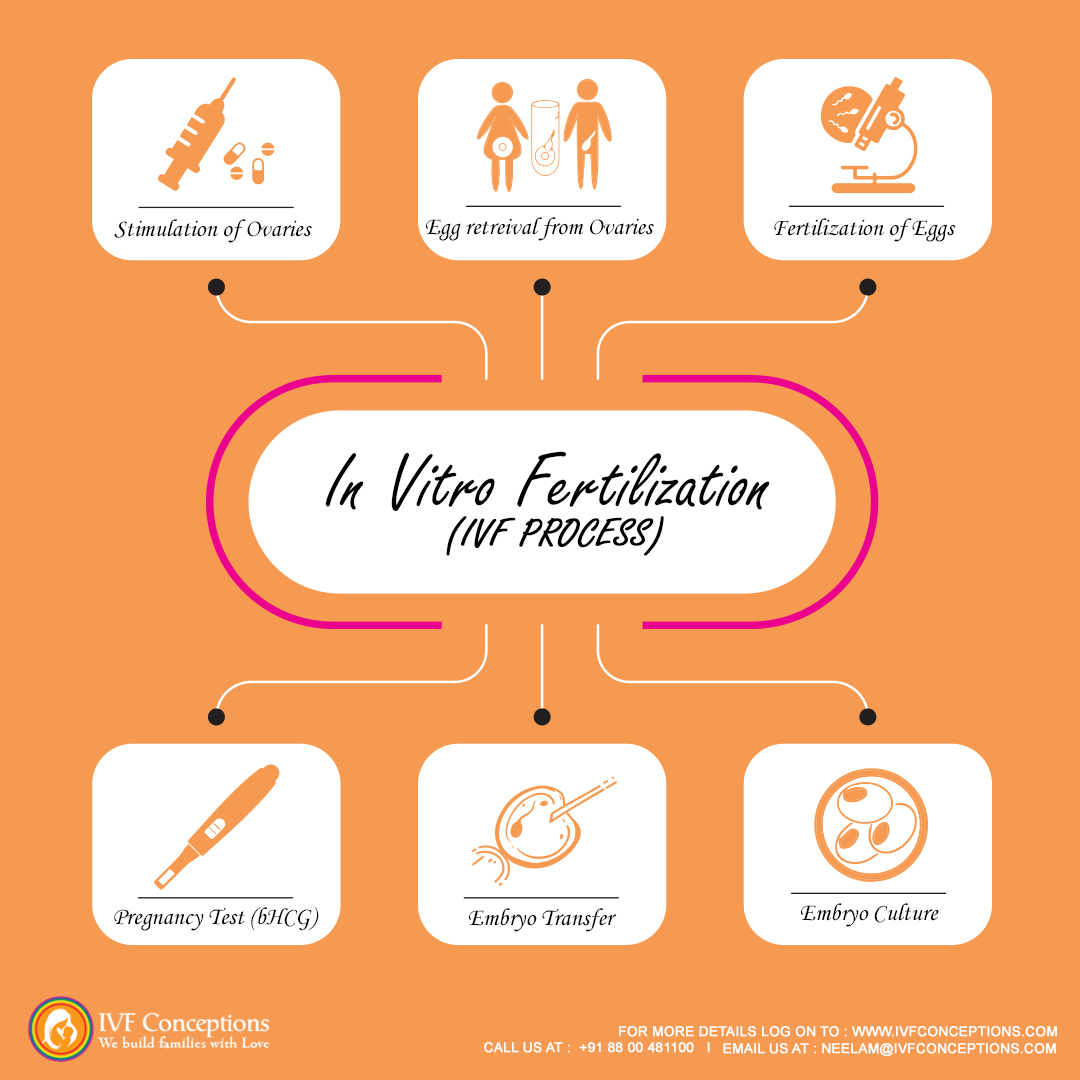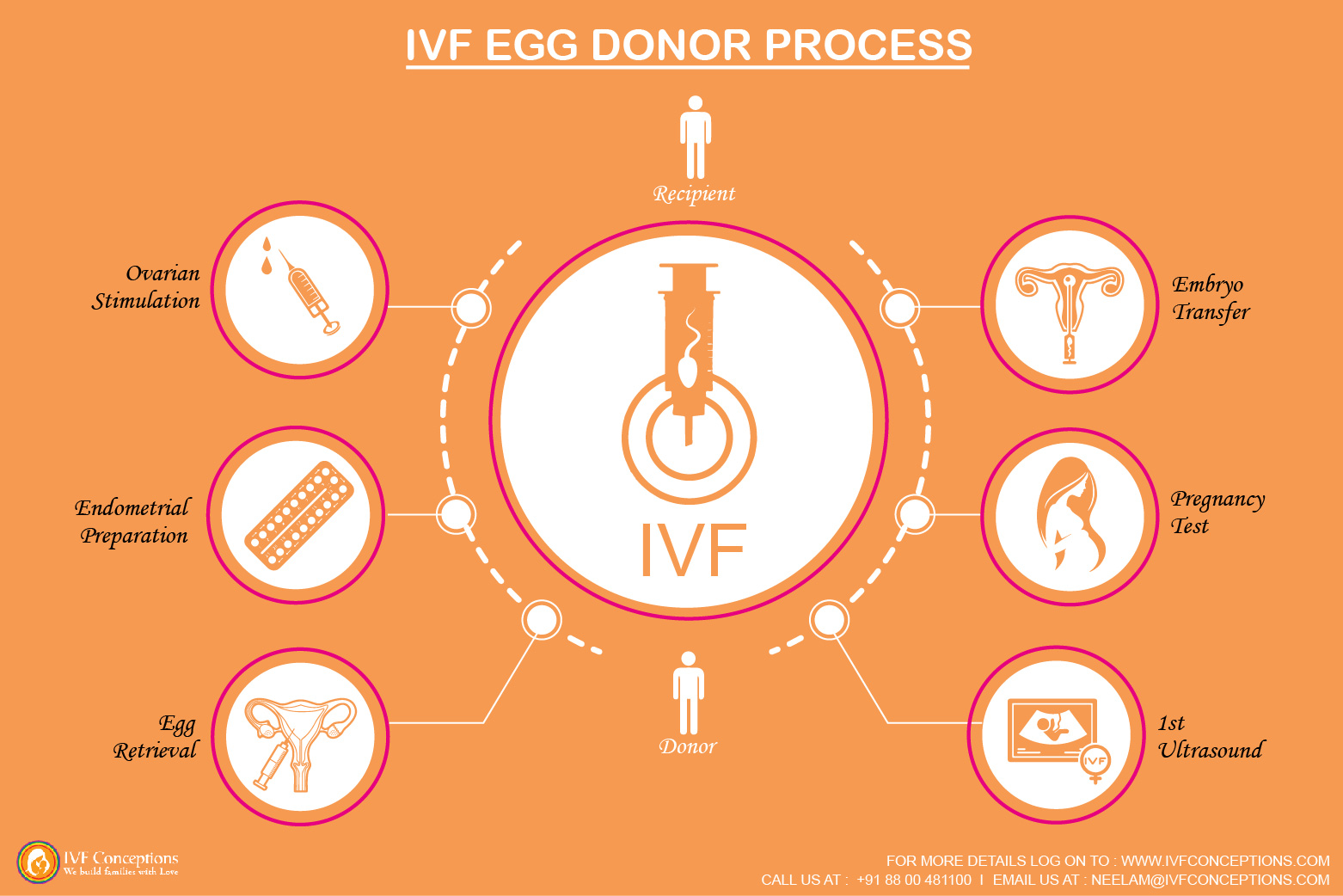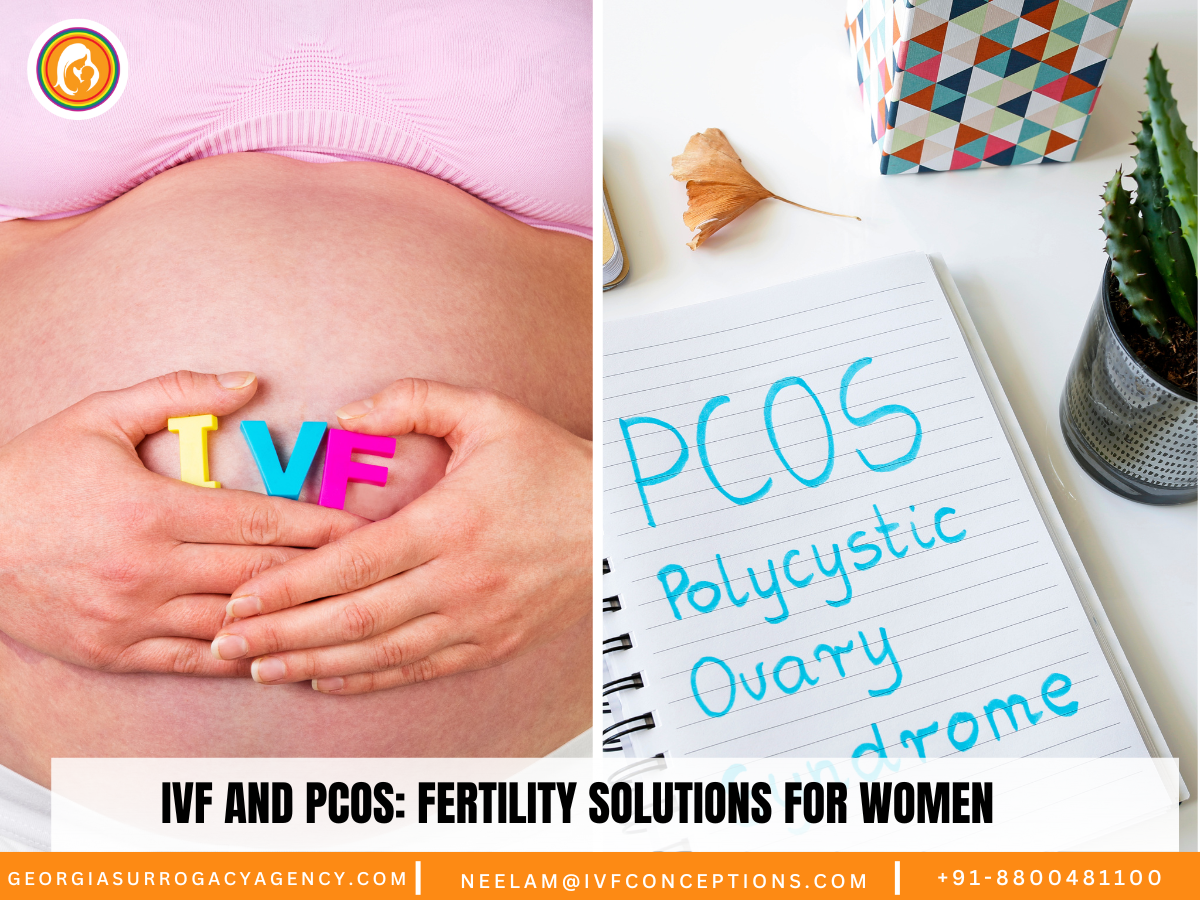IVF and PCOS: Fertility Solutions for Women
Can women with polycystic ovary syndrome (PCOS) have a child? Yes, thanks to new fertility treatments like IVF. PCOS affects up to 12% of women and is a big reason for infertility. But, with special IVF treatments and fertility drugs, women with PCOS can beat infertility and have a baby.
- Book an online appointment: Get a free online consultation.
- Call\W:+91-8800481100 Email:neelam@ivfconceptions.com
Key Takeaways
- PCOS can lead to irregular ovulation, making it hard for women to get pregnant.
- IVF is a good option for women with PCOS, offering special treatments and drugs to help.
- Changing your lifestyle, like losing weight, can also help improve fertility in women with PCOS.
- Doctors might prescribe fertility drugs like metformin, clomid, and letrozole to help ovulate and get pregnant with PCOS.
- Women with PCOS might face a higher risk of problems like ovarian hyperstimulation syndrome during fertility treatments.
More Resources to Read:
IVF Egg Donation in Georgia Country: A Guide
Surrogacy vs IVF: Understanding the Key Differences
IVF Treatment in Georgia: What You Need to Know?
Female Infertility Causes Symptoms And Treatments
Understanding PCOS and Its Impact on Fertility

Polycystic Ovary Syndrome (PCOS) affects 8-13% of women who can have babies. It’s a hormonal disorder that changes the balance of sex hormones. This can make it hard for a woman to have babies.
What is Polycystic Ovary Syndrome (PCOS)?
PCOS is a complex condition that makes the body produce too much male hormone. This can cause small cysts on the ovaries. It can also lead to irregular periods, too much body hair, and weight gain.
How Does PCOS Affect Fertility?
PCOS makes it hard for women to ovulate regularly. This means they might not have periods or have them irregularly. Studies show that up to 70% of women with PCOS don’t know they have it. PCOS is a big reason why women can’t have babies.
PCOS also raises the risk of other health problems like type 2 diabetes. These problems can make it harder to have a baby. Women with PCOS might also face more pregnancy problems.
But, there are ways to help women with PCOS have babies. These include changing your lifestyle, taking medicine, and sometimes using advanced fertility treatments like IVF.
Lifestyle Changes and Weight Management for PCOS
Polycystic ovary syndrome (PCOS) affects 8% to 13% of women who can have babies. It’s a hormonal disorder. Losing weight can help women with PCOS get pregnant easier.
Even a little weight loss can help women ovulate better and get pregnant. Diet and exercise can manage PCOS symptoms and boost fertility.
Women with PCOS often have extra weight, especially around the belly. This raises the risk of diabetes and heart disease. Eating a high-fiber, low-sugar diet and exercising daily can help.
Losing 10% of your body weight can make periods regular and ease PCOS symptoms. Doctors may prescribe Metformin, birth control pills, or anti-androgen drugs to help.
| Lifestyle Intervention | Average Weight Loss | Average BMI Decrease | Average Free Androgen Index Improvement |
| Diet, Exercise, Behavioral Changes | 1.68 kg | 0.34 kg/m2 | 1.11 |
The studies on this topic are not perfect, but they show lifestyle changes help women with polycystic ovarian syndrome. By managing weight well, women with PCOS can better their chances of getting pregnant.
IVF AND PCOS: A Viable Fertility Solution
Women with polycystic ovary syndrome (PCOS) and trouble getting pregnant find hope in in vitro fertilization (IVF). About 1 in 10 women of childbearing age have PCOS. And 70-80% of these women have trouble getting pregnant. But, thanks to new technology, IVF is now a good choice for many with PCOS.
IVF Success Rates with PCOS

Women with PCOS can have the same success with IVF as those without it. For women under 35, the chance of a live birth is about 55-60% with IVF. This shows IVF can help overcome the challenges of PCOS.
IVF Protocols for PCOS
Fertility experts use special IVF methods for PCOS patients. These include the Ganirelix with Lupron trigger protocol and the PCOS down-regulation protocol. These methods help control the risk of ovarian hyperstimulation syndrome (OHSS) and balance hormones during IVF.
Thanks to assisted reproductive technology advances, fertility clinics can help women with PCOS become parents. They customize IVF for PCOS patients’ needs.
Fertility Medications for PCOS
Women with polycystic ovary syndrome (PCOS) may find fertility medications helpful. These drugs help with ovulation, hormone balance, and reproductive health. Let’s look at some common fertility drugs for PCOS.
-
Metformin for PCOS
Metformin is usually for type 2 diabetes but helps PCOS too. It makes insulin work better and lowers insulin levels. This can help ovulation and increase chances of getting pregnant. Losing just 5% of weight can also help PCOS symptoms, and metformin can help with that.
-
Clomid and Letrozole for PCOS
Clomifene (Clomid) is often the first choice for women with PCOS wanting to conceive. It helps the ovaries make mature eggs, which can lead to ovulation and pregnancy. If Clomid doesn’t work, letrozole (Femara) might be tried instead.
-
Gonadotropins or Injectable Fertility Drugs for PCOS
If Clomid or letrozole don’t work, doctors might suggest gonadotropins. These are injectable drugs that help the ovaries make mature eggs. They are often used before in vitro fertilization (IVF).
Finding the right fertility medication can be hard for women with PCOS. It’s important to work with a healthcare provider who knows about PCOS and fertility. They can help pick the best treatment for you.
PCOS and Potential Risks During Fertility Treatment
Women with polycystic ovary syndrome (PCOS) face special challenges in fertility treatments. They might get ovarian hyperstimulation syndrome (OHSS) and multiple pregnancies.
PCOS and Ovarian Hyperstimulation Syndrome (OHSS)

PCOS patients are more likely to get OHSS. This happens when the ovaries swell and hurt a lot. It’s because of how the ovaries react to fertility drugs during treatments like IVF.
Doctors keep a close eye on PCOS patients to spot and treat OHSS early.
PCOS and Multiple Pregnancies
Women with PCOS might have a higher chance of having twins or more during fertility treatments. This is because they often release more eggs during stimulation. While twins can be a dream for some, they also bring health risks for the mom and babies.
To lower these risks, doctors work closely with PCOS patients. They watch hormone levels, adjust medicines, and plan to prevent OHSS and twins. This makes sure the treatment is safe and works well.
| Statistic | Value |
| Women with PCOS who undergo IVF have up to a 70% chance of becoming pregnant. | 70% |
| Women with PCOS who conceive through IVF have up to a 60% chance of a successful live birth. | 60% |
| Women taking fertility injections for PCOS treatment often produce two or more eggs in one month. | 2+ |
| PCOS affects 5%-15% of women of reproductive age depending on the population studied and diagnostic criteria used. | 5-15% |
IVF Treatment for PCOS

At GEORGIA SURROGACY, our team knows how hard it can be for women with Polycystic Ovary Syndrome (PCOS) to start a family. We use the latest IVF techniques and fertility solutions to help them. We aim to make their dream of having a child come true.
PCOS affects 6% to 12% of women who can still have babies. It’s a big reason why many women can’t get pregnant. Our fertility clinic offers caring and custom care to these women. We tackle the hormonal issues and other problems that make it hard to conceive.
We want to make sure our PCOS patients have the best chance of success with IVF. Our results show that using GnRH antagonist medications gives a 53% success rate. This is higher than the usual 33% success rate. We carefully plan each treatment to avoid risks like ovarian hyperstimulation syndrome and too many babies.
More Resources to Read:
Debunking 5 Common Myths Associated with IVF
IVF Terminology and IVF Acronym 101: A Guide
Difference Between IVF and Surrogacy: A Comprehensive Guide
IVF vs IUI: Comparing Fertility Treatment Options
Conclusion
Polycystic ovary syndrome (PCOS) can make it hard for women to get pregnant. But, new treatments like in vitro fertilization (IVF) help many women with this issue. By making lifestyle changes and using special fertility treatments, women with PCOS can beat infertility and have a family.
Research says about 25% of women have PCOS. This condition can make it harder to get pregnant. It can also make pregnancy harder and increase the risk of problems. But, with the right treatment, women with PCOS can still have a good chance of getting pregnant.
IVF is a good option for women with PCOS. It has the same success rates as for women without PCOS. Even though PCOS might make it harder to get eggs and increase the number of eggs, new treatments help improve success rates. With the right care, women with PCOS can reach their dream of having a family.
Our team has over 14 years of experience facilitating surrogacy arrangements, egg donation, and serving as an advocacy resource for infertile couples and LGBTQ individuals seeking to build families. Till now we have helped and supported thousands of the intended parents with their family-building journey, and we can help you as well. Happy to share the references from the past IPs if needed.
If you’d like to learn more about IVF, Egg Donation, or surrogacy services globally, check out the rest of our website at Georgia Surrogacy Agency. We offer legally secure and affordable surrogacy consulting services for FREE.
Get in touch for FREE SURROGACY CONSULTING:
Mobile: +91-8800481100 ( WhatsApp, Line, Viber)
Email: neelam@ivfconceptions.com

FAQs for IVF and PCOS
What is Polycystic Ovary Syndrome (PCOS)?
PCOS is a hormonal disorder. It makes the body produce more male sex hormones. This can cause small cysts on the ovaries and stop ovulation.
How Does PCOS Affect Fertility?
PCOS can cause irregular or missed periods, big ovaries, too much body hair, and weight gain. These can make it hard to have a baby. Women with PCOS often have trouble ovulating, making it tough to conceive.
Can Lifestyle Changes and Weight Management Improve Fertility in Women with PCOS?
Yes, losing weight can help women with PCOS. Even a little weight loss can help ovulation and increase pregnancy chances. Changing your lifestyle, like eating better and exercising, can manage PCOS symptoms and improve fertility.
What are the Success Rates of IVF for Women with PCOS?
Women with PCOS can have similar IVF success rates as those without it. Live birth rates are about 55-60% for women under 35.
What IVF Protocols are Used to Treat PCOS?
Special IVF methods, like the Ganirelix with Lupron trigger protocol, can lower the risk of ovarian hyperstimulation syndrome. They also help increase the chances of a successful pregnancy for women with PCOS.
What Fertility Medications are Used to Treat PCOS?
Medicines like Metformin, Clomid, Letrozole, and injectable gonadotropins help women with PCOS ovulate. They improve the chances of getting pregnant.
What are the Potential Risks Associated with Fertility Treatments for PCOS?
Women with PCOS face a higher risk of ovarian hyperstimulation syndrome (OHSS) during fertility treatments. This can make the ovaries swell and hurt. PCOS treatments, including IVF, also increase the risk of having twins or more, which can be a concern for some couples.
How Does Elite IVF Treat PCOS Patients?
Elite IVF has a team of fertility experts who know how to help women with PCOS. They use the latest IVF methods and tailor treatments for each patient. Elite IVF aims for high success rates and supports patients and their partners on their fertility journey.
Source Links
- Treatments for Infertility Resulting from PCOS
- PCOS and IVF – ELITE IVF – Global IVF Clinic
- The relationship between polycystic ovary syndrome and infertility: a bibliometric analysis
- Polycystic ovary syndrome
- Polycystic Ovary Syndrome (PCOS)
- Polycystic Ovary Syndrome (PCOS) and Weight Gain

Highly esteemed, authoritative, and trusted professional with a 14-year of experience in international surrogacy. Advocate for Secure, Legal, and Affordable International Surrogacy.
Neelam Chhagani, MA (Counselling Psychology) and Holistic Infertility and Third-Party Reproduction Consultant.
Member of European Fertility Society, Best Surrogacy Blogger of 2020, with 300 dedicated blogs, and top contributor on Quora for Surrogacy.


Add Your Comment